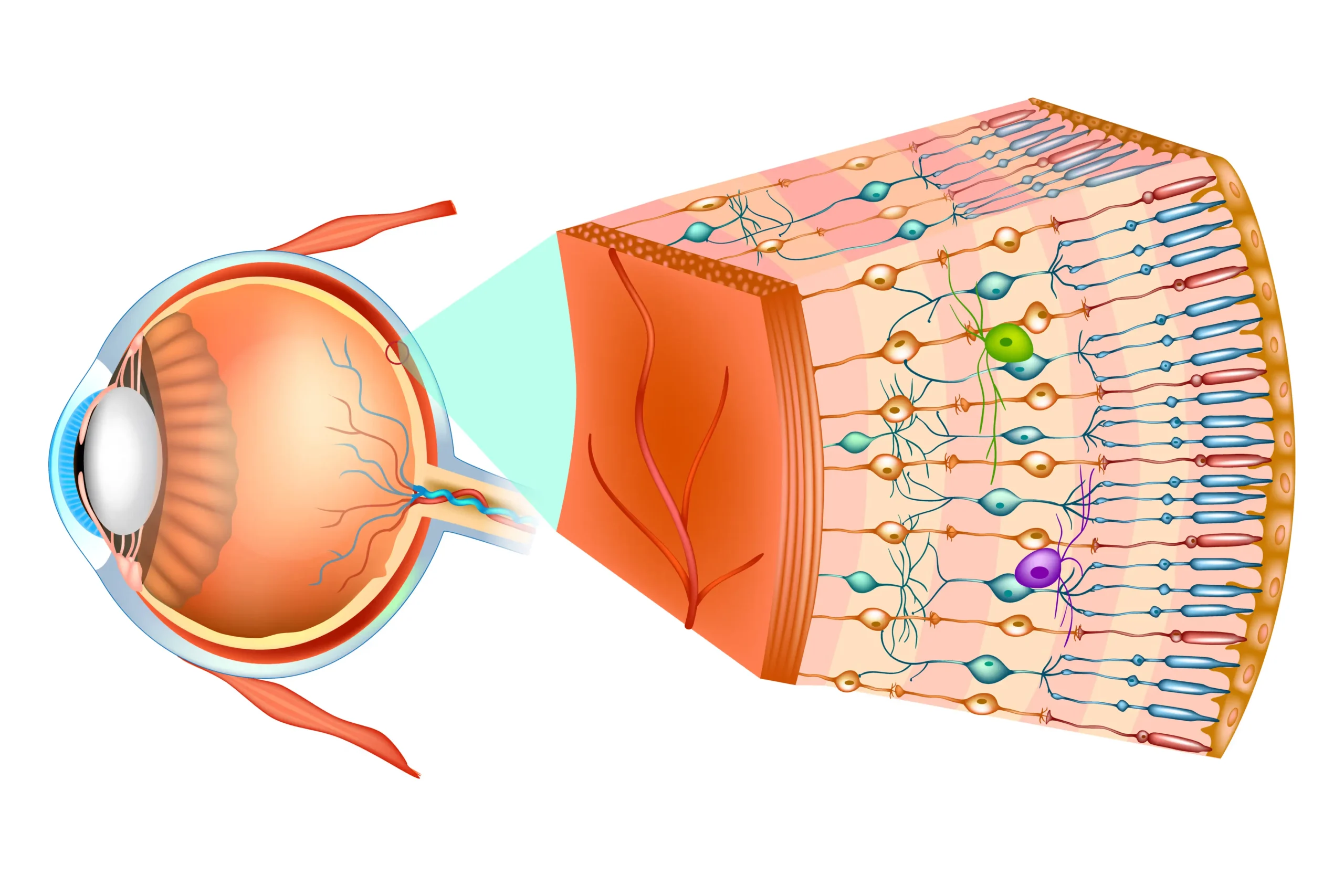
What Are Retinal Diseases?
Retinal diseases affect the retina – the thin layer of tissue at the back of the eye that senses light and sends visual signals to the brain. When the retina is damaged, vision can become blurry, distorted, or even lost. Some conditions develop gradually, while others may require urgent treatment to prevent permanent vision loss.
Common retinal conditions include:
Diabetic Retinopathy: Caused by damage to the retinal blood vessels due to long-term diabetes. It may result in leakage, swelling, or abnormal vessel growth.
Retinal Detachment: A serious condition where the retina peels away from its underlying tissue, requiring urgent surgical treatment.
Macular Degeneration: Often age-related, it affects the macula and leads to loss of central vision. Early detection is key to slowing progression.
Macular Hole: A small break in the center of the retina that distorts or blurs central vision. Surgery can often repair it.
Retinal Vein Occlusion: A blockage in one of the retinal veins, leading to vision problems due to fluid leakage and swelling.





